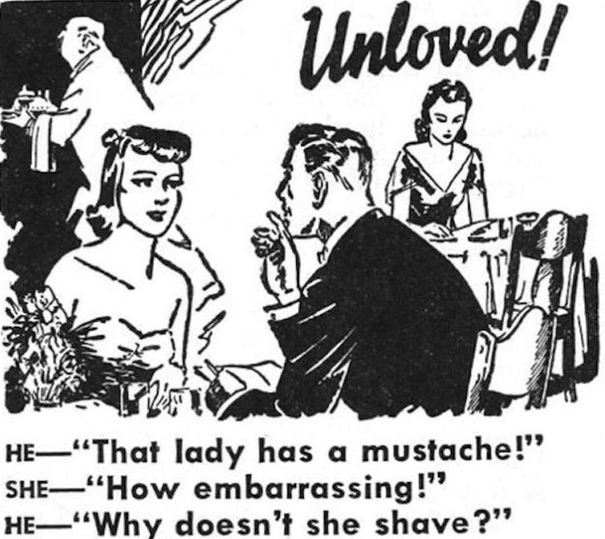Columnist Sammy Sinatra
The words “body hair” bring about countless negative connotations directed at women. The thought that women could even have as much body hair as men is almost appalling to some, even though it’s a natural function of growth in the human body.
Today, more women than ever before are destigmatizing body hair and embracing what they had been plucking, picking, shaving and waxing off.
The belief that women do not need to remove hair, but are more so required by dominant ideologies to change, has caused an uproot in core ideas that have wrongly shaped our culture. Removing hair has a cultural connection to increasing attractiveness to oneself.
Sage Journals published a research article about this concept. Susan Basow and Amie Braman conducted a 1998 study on perceptions and social attitudes of women in relation to body hair. The study found that both women and men participants in the study found woman volunteers more attractive when no body hair was present.
This study is one example of the body hair stigma that society quite frankly needs to get over. Body hair should not determine or even contribute to the thought of appearance.
The beginning of puberty marks the pressure to remove body hair, most commonly armpit and leg hair. This can later lead into the removal of arm, facial and pubic hair. However, there has been a recent wave of women’s liberation in which some women are breaking this pattern. A study in the Independent found that in 2013, 95 percent of women aged 16 to 24 were shaving. However, by 2016 the number decreased to 77 percent. Women are questioning the need for shaving and are reclaiming their body hair by not adhering to societal stigmas.
In addition to the study in the Independent, other experts have done research on this topic because of the growing change in views of body hair. Market Research by Mintel found that nearly one in four young women in 2016 stopped shaving underarm hair. This is a huge growth from early rooted ideas that can be linked back to the hippie movement.
A lot of attention surrounding this can be credited to the media. Writers have published countless articles on the latest celebrity that has stopped their hair removal. Women have turned the media into a platform to speak out and spread the idea that removing hair is just a notion reinforced by society. Yet, it can also be used to voice the opinion that body hair is not acceptable and thus create an unnecessary divide.
An argument forms on what is “right” when it comes to body hair, and at the core, this is not what it’s all about. It shouldn’t be a divide between hair or no hair, it should be an acceptance to the idea that hair should not be a factor when perceiving others.
Women are using their voices to showcase that an individual should do what they want, not what the public wants. Body hair should not be an aspect in the quality of oneself and should not determine how people identify you. Talking about it matters, because it leads to the common knowledge that your body is your choice, not society’s.
The stigma against body hair isn’t something that can be changed overnight, but creating dialogue opens up doors to change and the idea of loving yourself however hairy (or unhairy) you want to be is your choice alone.





![[Both photos courtesy of sonoma.edu]
Ming-Ting Mike Lee stepped in as the new SSU president following Sakakis resignation in July 2022](https://sonomastatestar.com/wp-content/uploads/2024/04/CC4520AB-22A7-41B2-9F6F-2A2D5F76A28C-1200x1200.jpeg)



























